There is a lot of competition to land an entry-level job in the IT field. And with so many applicants for each opening, you need to stand out from the crowd to get noticed. An IT specialist resume is your first chance to impress potential employers and get an interview. However, writing an effective resume can be challenging, especially if you are just starting your career or switching careers after a long break from school. Write the wrong resume, and you won’t even get the first interview. But with the correct information and tips, creating an IT specialist resume will be much easier. A practical summary should be concise and clear while representing you as an individual with unique skills and experiences. The best resumes are tailored to the job you’re applying for and showcase your transferable skills, education, and expertise throughout your career.
IT Specialist Resume Example

Download This IT Specialist Resume as PDF
IT Consultant Resume Example
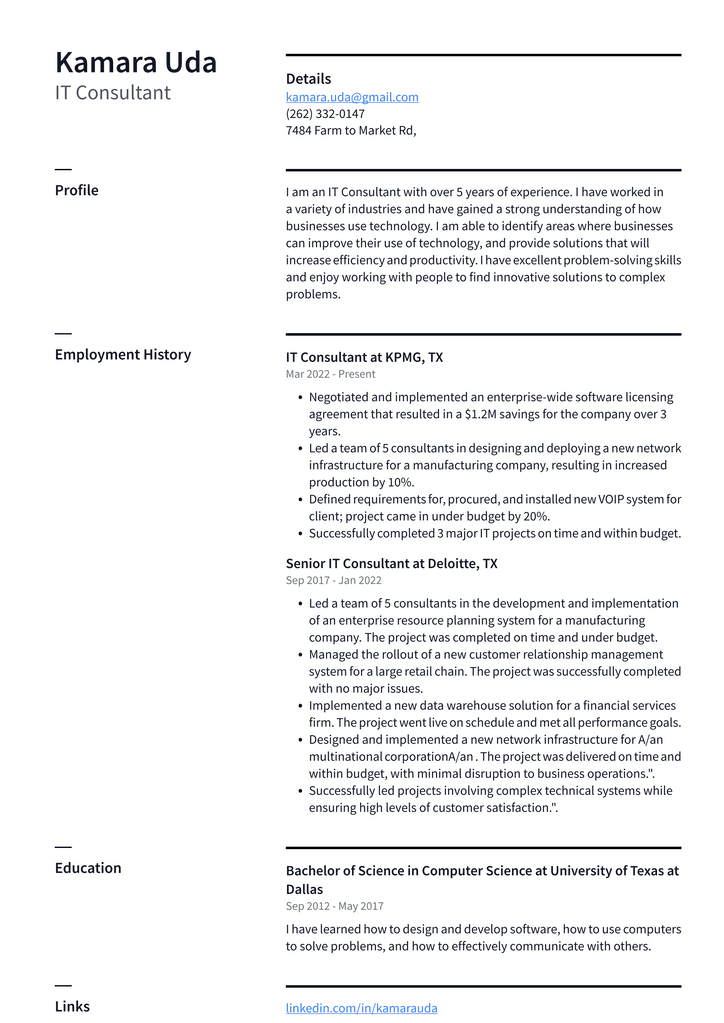
Download This IT Consultant Resume as PDF
IT Support Specialist Resume Example
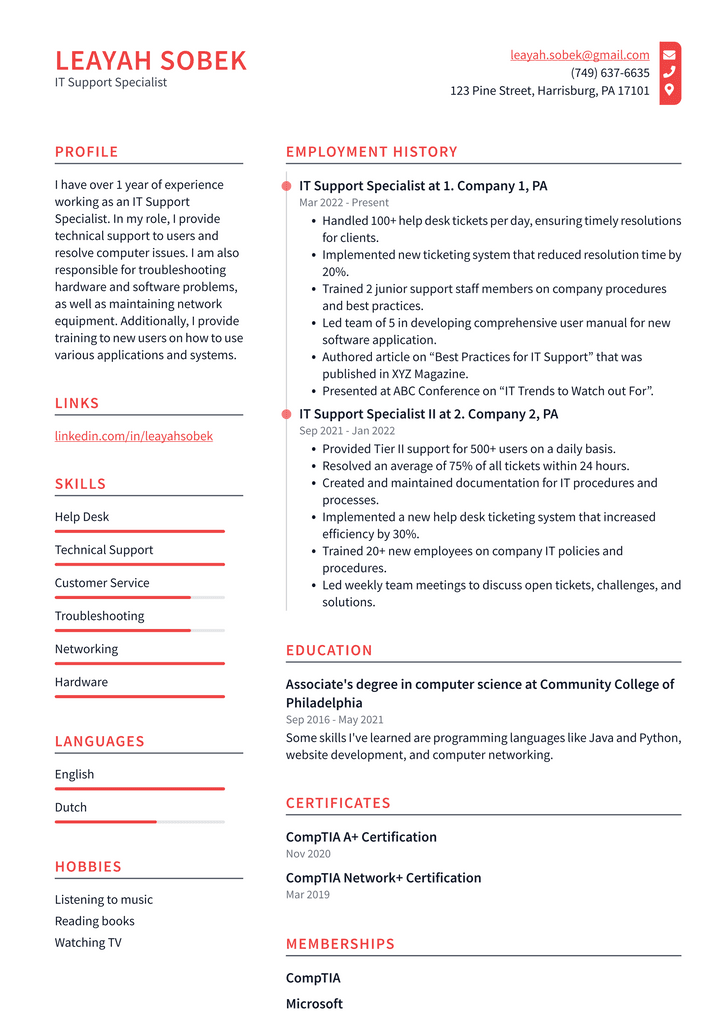
Download This IT Support Specialist Resume as PDF
IT Director Resume Example
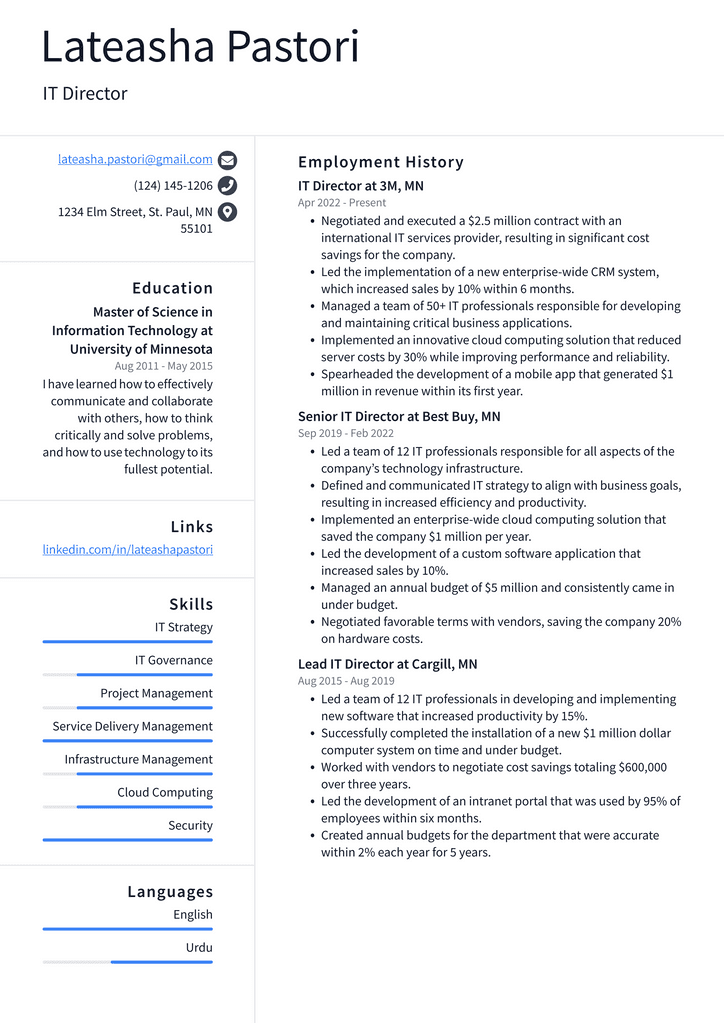
Download This IT Director Resume as PDF
IT Manager Resume Example
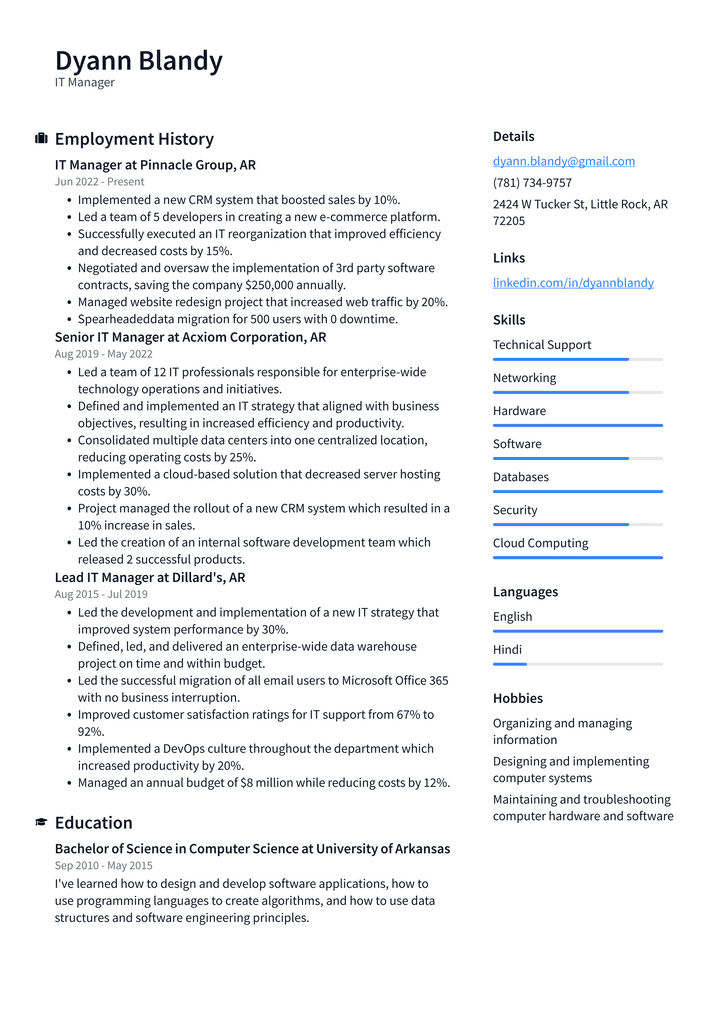
Download This IT Manager Resume as PDF
IT Project Manager Resume Example
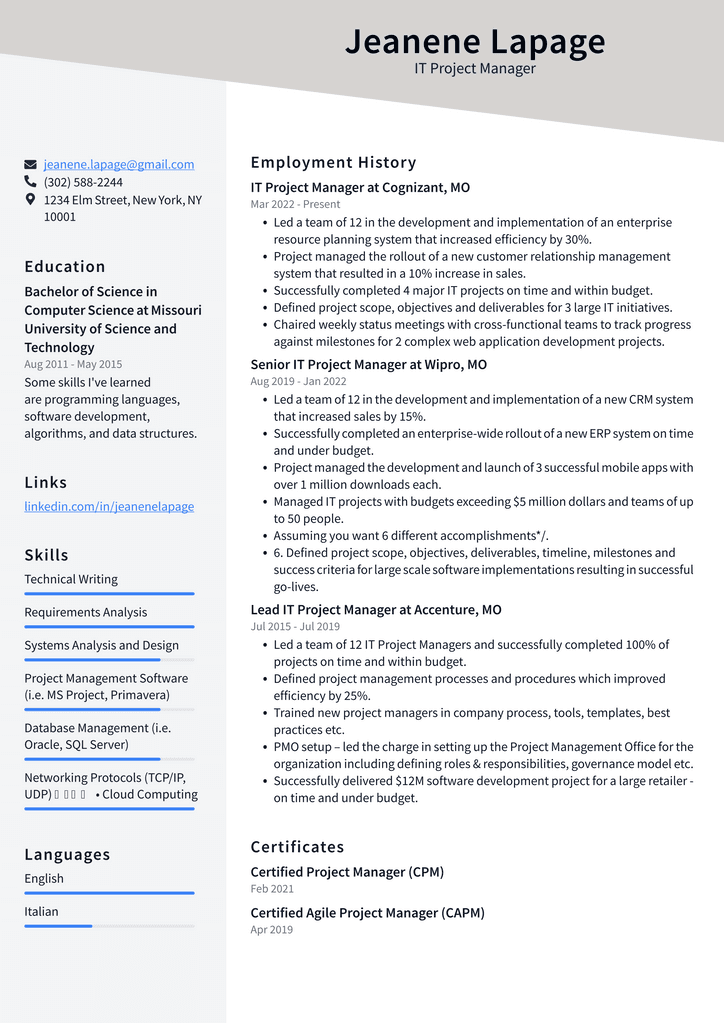
Download This IT Project Manager Resume as PDF
IT Systems Analyst Resume Example
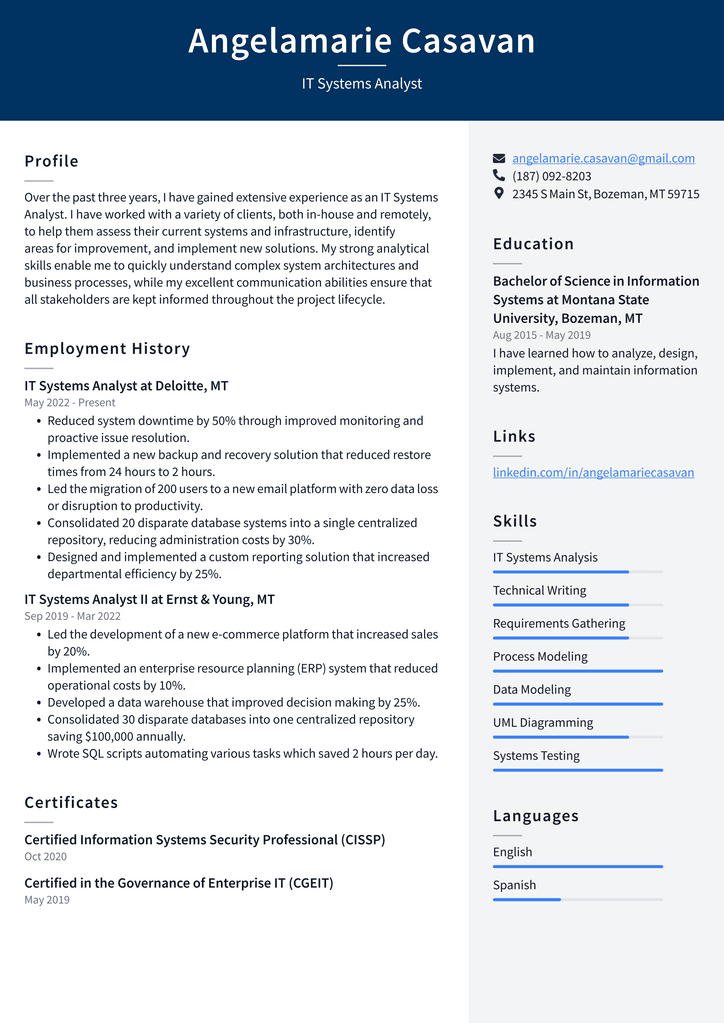
Download This IT Systems Analyst Resume as PDF
How to Write an Effective Resume for the IT Field
The first thing to remember when writing an effective resume is that it’s not a narrative essay. A resume should be formatted like a table of contents with short sections highlighting your most important information. Cuts and bolded areas make your resume easier to read and help the hiring manager quickly find the most critical information. Include your name and contact details at the top of each page. Your resume should be formatted as one long paragraph without bold or italicized keywords. Employers use software to scan through thousands of resumes, so your document must be scannable. The hiring manager must understand what you’ve done at a glance.
Make your resume scannable
A scannable resume stands out from the rest in a sea of applicants, and hiring managers can find the most relevant information about you quickly and easily. While you want to include pertinent information, a long list of headings and details will overwhelm the reader. Instead, keep your resume to one page. Break your experience into three or four manageable paragraphs that are easy to read. In the first or second paragraph, let the hiring manager know what you want to do and how you can help their company. Include your name and contact information at the top of each page.
Show your transferable skills
Every IT specialty requires transferable skills or the ability to do a wide range of tasks and work effectively in a team. An effective resume should show that you have these skills, even before applying for a job. A professional resume writer can help you identify the transferable skills that are most important to your career and incorporate them into your resume. Many hiring managers look for soft skills like teamwork, communication, flexibility, and problem-solving on their resumes. Highlight any work experience that demonstrates these skills.
List your education first
Education is critical for a resume. Employers are often more interested in where you went to school than what you studied. Therefore, your highest-level education should be at the top of your resume, followed by your other degrees and certifications. Include the institution’s name, your degree or certificate, the year you graduated (or expected graduation), and the GPA if you received a high GPA. If your GPA is low, consider omitting it.
Include your certifications and licenses
If you have relevant certifications or licenses, include them on your resume. Your certifications demonstrate transferable skills, and the licensing shows an investment in your career. For example, if you are applying for a network engineering job, you may want to include your CompTIA Network+ certification. Or, if you are using it for a career in cybersecurity, you might consist of your CISSP certification.
Summing up
Your resume should be a condensed version of your career to date, highlighting your experience and skills so that the hiring manager can quickly determine whether you’re a good fit for the job. An effective resume makes you stand out from the crowd and helps you get an interview without wasting time and effort. Your resume should be formatted as one long paragraph without bold or italicized keywords. A scannable resume stands out from the rest in a sea of applicants, and hiring managers can find the most relevant information about you quickly and easily. When writing your resume, remember that employers are looking for candidates who excel in four main areas: Technical ability, teamwork, skills, and knowledge. The best resumes are tailored to the job you’re applying for and showcase your transferable skills, education, and experience throughout your career. An effective resume will help you get noticed and land an interview.